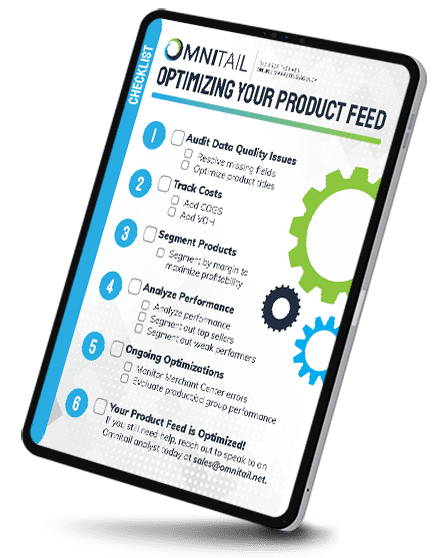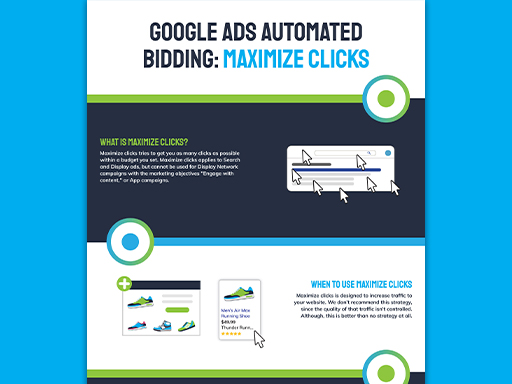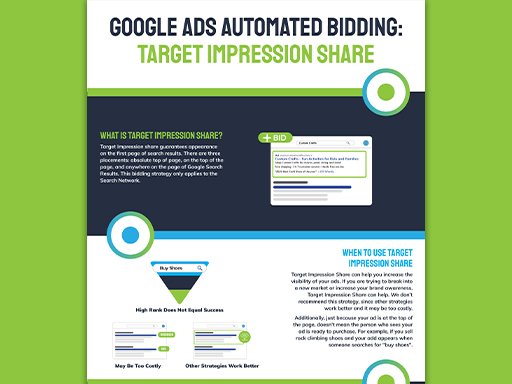The two types of paid search queries (branded and non-branded) are inherently different, and you need to manage each differently. Segmenting SEM traffic along these lines is one of the most fundamental things we do to improve search campaigns at Omnitail. Let’s take a look at the value of branded queries, and discover whether or not you should bid on your brand name.

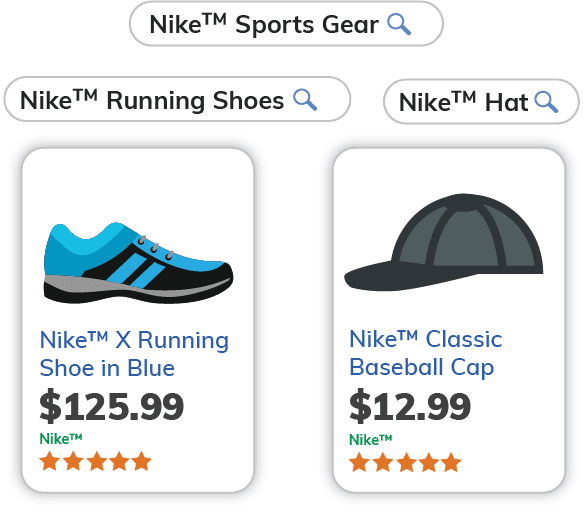
What are Branded Queries?
Branded queries are searches that include your brand name or domain name. For example, at Nike, a search like “Nike men’s shoes” or “running shoes Nike.com” is branded.
Non-branded queries, on the other hand, do not include your brand name or domain. For example, “men’s shoes” or “running shoes” would be non-branded terms.
Branded queries generally display a higher level of user intent to visit your site. As such, you have a few advantages when you bid on your brand name.

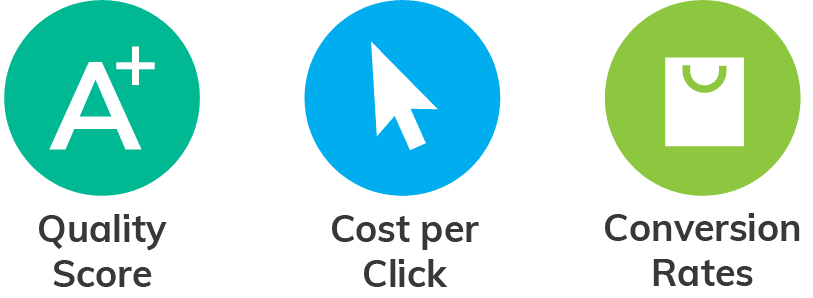
Advantages of Bidding on Brand Name
Google will typically recognize that your ads and keywords are particularly relevant to branded queries, which gives you a considerable advantage on quality score for these terms when you bid on your brand name. You should be able to maintain any given ad position at a lower CPC than it would take your competitor to serve in that position.
Additionally, users already interested in your particular brand or site are generally going to have substantially higher conversion rates. Those two factors combined often result in branded traffic being far and away more efficient and profitable than any other paid channel.

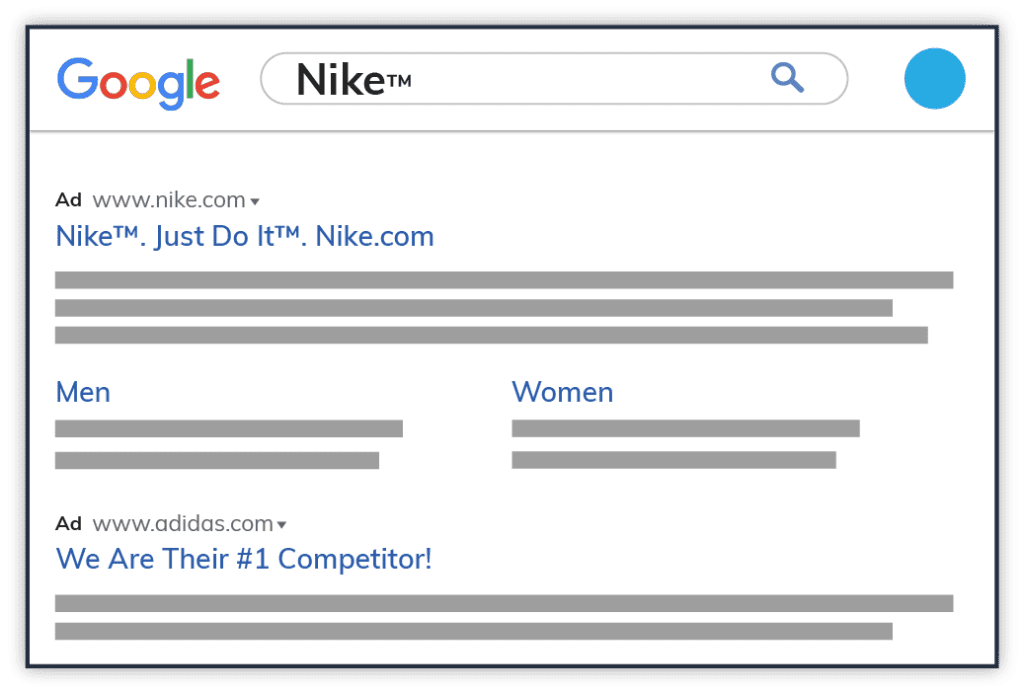
How to Avoid Wasting Spend When You Bid on Brand Name
Unfortunately, there is always the lingering question: am I paying for transactions I would have gotten for free anyway? After all, if the shopper is that determined to purchase from me, won’t they make it to my site one way or another? To answer this, there are a few questions that need to be answered first.
1. Do I have an organic presence on my branded queries?
This boils down to whether there is an alternative route to your website available on the SERP if you choose not to advertise on branded traffic. Organic presence on branded queries is a given for most advertisers, but take a moment to ensure you are showing in the top spot on queries for your brand name. If not, you stand to lose a lot of visibility by failing to advertise—and you should probably bid on your brand name.
2. Do I have competitors bidding on my branded queries?
If the answer is yes and you stop advertising, it is possible a competitor will take the top spot above any organic listings. Check out our blog “How to Keep Competitors Out of Your Search Results” if you have this problem.
If the answer is no, you can likely maintain the #1 position with just organic listings. That doesn’t necessarily mean having an ad above your organic listing will not help, but it certainly lessens the urgency of it.

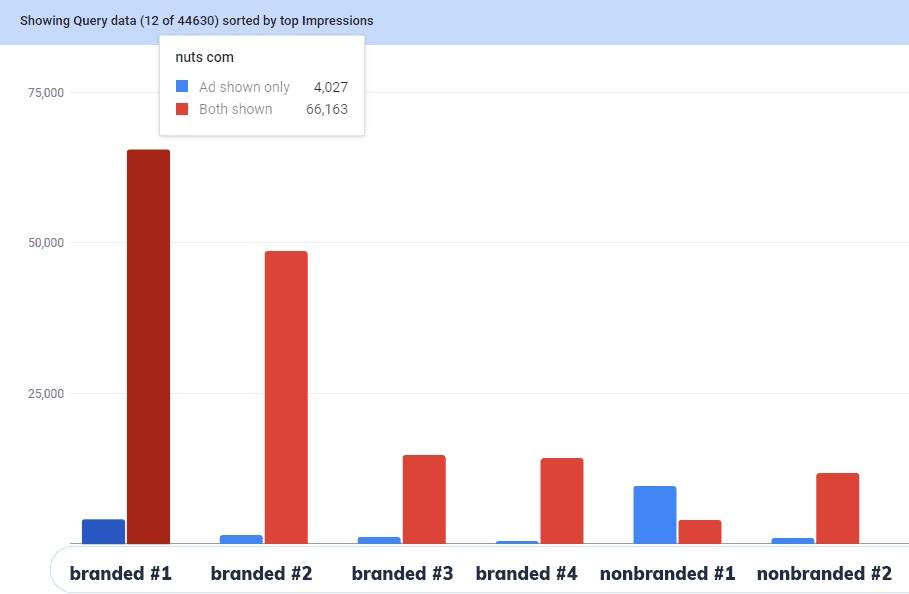
Validate Spending on Branded Terms
As a general rule of thumb, if the following apply to your business, you should bid on your brand name.
1. CPCs for your branded ads are low—as in, costs are under or around $0.50 for the top spot.
2. Your competitors are bidding on your branded terms.
If neither applies to your business, or if they both apply but you want to run some numbers to validate your strategy, you can look at the paid and organic report. This report allows you to filter for your branded traffic and segment data into three categories: ad shown only, organic shown only, and both shown.
To gauge how much traffic you might be losing by choosing not to advertise, pick a top query and compare the click-through rates for paid and organic traffic. The difference between the two is what you stand to lose if you’re not advertising on that term.
With the high value of branded traffic, even minor differences in CTR can lead to large disparities in revenue. This can even be enough to offset the additional ad spend by a considerable margin.

How do branded queries perform for your business? Are they productive—or just burning extra ad spend? Let us know on LinkedIn, or reach out to us here if you need help designing a paid search strategy that works for you!.


